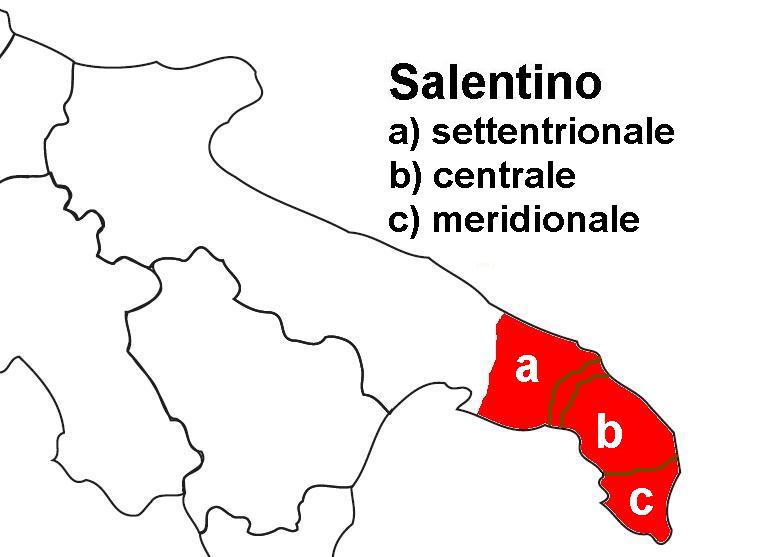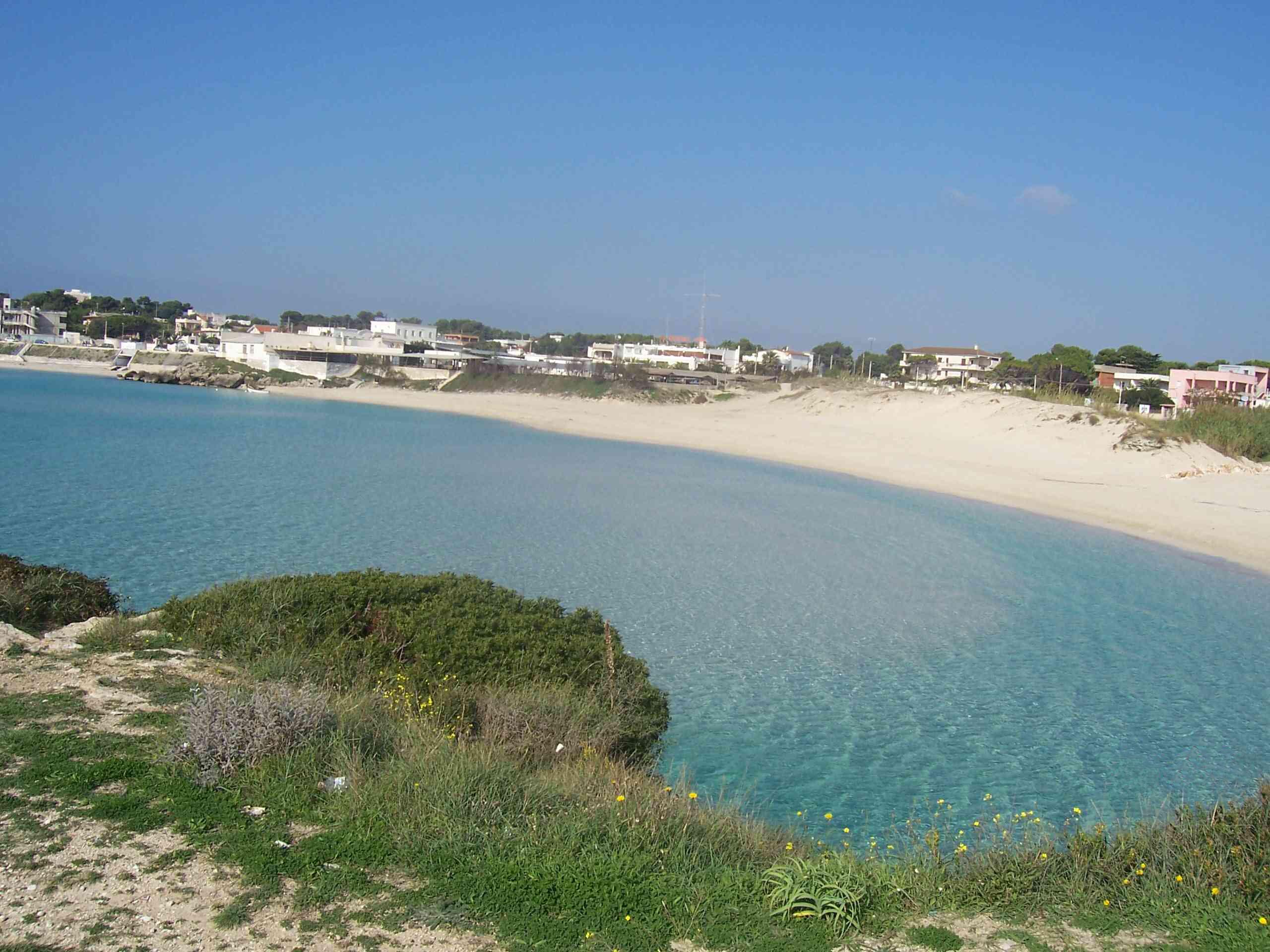|
Monteparano
Monteparano (Salentino: ) is a town and ''comune'' in the province of Taranto in the Apulia region of southeast Italy. Monteparano was historically an Arbëreshë Arbën/Arbër, from which derived Arbënesh/Arbëresh originally meant all Albanians, until the 18th century. Today it is used for different groups of Albanian origin, including: * Arbër (given name), an Albanian masculine given name * Arbëresh ... settlement. After the inhabitants abandoned the Albanian Greek Orthodox faith they assimilated into the local population. References Cities and towns in Apulia Localities of Salento Arbëresh settlements {{Puglia-geo-stub ... [...More Info...] [...Related Items...] OR: [Wikipedia] [Google] [Baidu] |
Arbëreshë People
The Arbëreshë (; sq, Arbëreshët e Italisë; it, Albanesi d'Italia), also known as Albanians of Italy or Italo-Albanians, are an Albanian ethnolinguistic group in Southern Italy, mostly concentrated in scattered villages in the region of Calabria and, to a lesser extent, in the regions of Abruzzo, Apulia, Basilicata, Campania, Molise and Sicily. They are the descendants of Albanian refugees who fled Albania, and later some from Morea between the 14th and the 18th centuries following the Ottoman conquest of the Balkans. During the Middle Ages, the Arbëreshë settled in the Kingdom of Naples in several waves of migration, following the establishment of the Kingdom of Albania, the death of the Albanian national hero Gjergj Kastrioti Skënderbeu and the gradual conquest of the Byzantine Empire by the Ottomans. Their culture is determined by the main features that are found in language, Byzantine Rite Catholic religion, traditional costume, customs, art and gastro ... [...More Info...] [...Related Items...] OR: [Wikipedia] [Google] [Baidu] |
Apulia
Apulia ( ), also known by its Italian name Puglia (), :: nap, label=, Puie :: nap, label=Tarantino dialect, Tarantino, Puje : scn, label=Salentino dialect, Salentino, Puia : frp, label=Faetar language, Faetar, Poulye : el, label=Griko language, Griko, Απουλία : aae, Pulia. is a Regions of Italy, region of Italy, located in the Southern Italy, southern peninsular section of the country, bordering the Adriatic Sea to the east, the Ionian Sea to the southeast and the Strait of Otranto and Gulf of Taranto to the south. The region comprises , and its population is about four million people. It is bordered by the other Italian regions of Molise to the north, Campania to the west, and Basilicata to the southwest. Its chief town is Bari. Geography Apulia's coastline is longer than that of any other mainland Italian region. In the north, the Gargano promontory extends out into the Adriatic sea like a 'sperone' ("spur"), while in the south, the Salento peninsula forms the 'tacc ... [...More Info...] [...Related Items...] OR: [Wikipedia] [Google] [Baidu] |
Istituto Nazionale Di Statistica
The Italian National Institute of Statistics ( it, Istituto nazionale di statistica; Istat) is the main producer of official statistics in Italy Italy ( it, Italia ), officially the Italian Republic, ) or the Republic of Italy, is a country in Southern Europe. It is located in the middle of the Mediterranean Sea, and its territory largely coincides with the homonymous geographical .... Its activities include the census of population, economic censuses and a number of social, economic and environmental surveys and analyses. Istat is by far the largest producer of statistical information in Italy, and is an active member of the European Statistical System, coordinated by Eurostat. History The Italian National Institute of Statistics (IT ISTAT) was founded in compliance with Law Decree no. 1162 of 9 July 1926 as the Central Institute of Statistics (IT Istituto Centrale di Statistica) in order to replace the General Statistics Division of the Ministry for Agriculture (now ... [...More Info...] [...Related Items...] OR: [Wikipedia] [Google] [Baidu] |
Salentino
Salentino () is a dialect of the Extreme Southern Italian ( in Italian) spoken in the Salento peninsula, which is the southern part of the region of Apulia at the southern "heel" of the Italian peninsula. Overview Salentino is a dialect of the Extreme Southern Italian language group (in Italian ''Italiano meridionale estremo''). It is thus closer to the Southern Calabrian dialect and the dialects of Sicily than to the geographically less distant dialects of central and northern Apulia. The traditional areas where Salentino is spoken are the aforementioned Province of Lecce, much of the southern part of the province of Brindisi, and the southern part of Taranto province. History The Salentino dialect is a product of the different powers and/or populations that have had a presence in the peninsula over the centuries: indigenous Messapian, Ancient Greek, Roman, Byzantine Greek, Lombard, French and Spanish influences are all, to differing levels, present in the modern di ... [...More Info...] [...Related Items...] OR: [Wikipedia] [Google] [Baidu] |
Town
A town is a human settlement. Towns are generally larger than villages and smaller than city, cities, though the criteria to distinguish between them vary considerably in different parts of the world. Origin and use The word "town" shares an origin with the German language, German word , the Dutch language, Dutch word , and the Old Norse . The original Proto-Germanic language, Proto-Germanic word, *''tūnan'', is thought to be an early borrowing from Proto-Celtic language, Proto-Celtic *''dūnom'' (cf. Old Irish , Welsh language, Welsh ). The original sense of the word in both Germanic and Celtic was that of a fortress or an enclosure. Cognates of ''town'' in many modern Germanic languages designate a fence or a hedge. In English and Dutch, the meaning of the word took on the sense of the space which these fences enclosed, and through which a track must run. In England, a town was a small community that could not afford or was not allowed to build walls or other larger fort ... [...More Info...] [...Related Items...] OR: [Wikipedia] [Google] [Baidu] |
Comune
The (; plural: ) is a local administrative division of Italy, roughly equivalent to a township or municipality. It is the third-level administrative division of Italy, after regions ('' regioni'') and provinces ('' province''). The can also have the title of ('city'). Formed '' praeter legem'' according to the principles consolidated in medieval municipalities, the is provided for by art. 114 of the Constitution of Italy. It can be divided into '' frazioni'', which in turn may have limited power due to special elective assemblies. In the autonomous region of the Aosta Valley, a ''comune'' is officially called a ''commune'' in French. Overview The provides essential public services: registry of births and deaths, registry of deeds, and maintenance of local roads and public works. Many have a '' Polizia Comunale'' (communal police), which is responsible for public order duties. The also deal with the definition and compliance with the (general regulator plan), ... [...More Info...] [...Related Items...] OR: [Wikipedia] [Google] [Baidu] |
Province Of Taranto
The province of Taranto ( it, provincia di Taranto; Tarantino: ; Salentino: ), previously known as the province of the Ionian, is a province in the Apulia region of Italy. Its capital is the city of Taranto. It has an area of , and a total population of 581,092 (2017). There are 29 ''comuni'' (singular: ''comune'') in the province, all of which are listed at comunes of the Province of Taranto. The coat of arms of the province contains a scorpion, which Pyrrhus is thought to have seen when looking down at Taranto. History When Italy was unified, the province of Lecce was formed; the western section of this later became the current province of Taranto. On 23 September 1923, Taranto became the capital of a new province based on the ancient Terra d'Otranto, in recognition of the important role the city had served since ancient times. Until 1951, the new province was called the "Province of the Ionian". The scorpion on the city's coat of arms may have been used as its emblem in an ... [...More Info...] [...Related Items...] OR: [Wikipedia] [Google] [Baidu] |
Italy
Italy ( it, Italia ), officially the Italian Republic, ) or the Republic of Italy, is a country in Southern Europe. It is located in the middle of the Mediterranean Sea, and its territory largely coincides with the homonymous geographical region. Italy is also considered part of Western Europe, and shares land borders with France, Switzerland, Austria, Slovenia and the enclaved microstates of Vatican City and San Marino. It has a territorial exclave in Switzerland, Campione. Italy covers an area of , with a population of over 60 million. It is the third-most populous member state of the European Union, the sixth-most populous country in Europe, and the tenth-largest country in the continent by land area. Italy's capital and largest city is Rome. Italy was the native place of many civilizations such as the Italic peoples and the Etruscans, while due to its central geographic location in Southern Europe and the Mediterranean, the country has also historically b ... [...More Info...] [...Related Items...] OR: [Wikipedia] [Google] [Baidu] |
Arberia Parish
The Arberia Parish ( it, Parrocchia ortodossa arbëresh del Patriarcato di Mosca) is an Eastern Orthodox Christian parish subordinated to the Russian Orthodox Church (Patriarchate of Moscow). It serves the minority Orthodox Christian community of the Arberesh people of Italy, who are predominantly adherents of the Italo-Albanian Greek Catholic Church. Its head church ( it, Chiesa di Santa Caterina Megalomartire, Acquaformosa) is in Acquaformosa near Cosenza and is headed by Father Giovanni Capparelli, who is a subordinate of the Patriarch of Moscow. The patron saints A patron saint, patroness saint, patron hallow or heavenly protector is a saint who in Catholicism, Anglicanism, or Eastern Orthodoxy is regarded as the heavenly advocate of a nation, place, craft, activity, class, clan, family, or person. ... of the Arberesh Orthodox Church are Saint John of Kronstadt and Saint Catherine Megalomartyr. References Sources * External links * Eastern Orthodox Christians fr ... [...More Info...] [...Related Items...] OR: [Wikipedia] [Google] [Baidu] |
Cities And Towns In Apulia
A city is a human settlement of notable size.Goodall, B. (1987) ''The Penguin Dictionary of Human Geography''. London: Penguin.Kuper, A. and Kuper, J., eds (1996) ''The Social Science Encyclopedia''. 2nd edition. London: Routledge. It can be defined as a permanent and densely settled place with administratively defined boundaries whose members work primarily on non-agricultural tasks. Cities generally have extensive systems for housing, transportation, sanitation, utilities, land use, production of goods, and communication. Their density facilitates interaction between people, government organisations and businesses, sometimes benefiting different parties in the process, such as improving efficiency of goods and service distribution. Historically, city-dwellers have been a small proportion of humanity overall, but following two centuries of unprecedented and rapid urbanization, more than half of the world population now lives in cities, which has had profound consequen ... [...More Info...] [...Related Items...] OR: [Wikipedia] [Google] [Baidu] |
Localities Of Salento
{{disambiguation ...
Locality may refer to: * Locality (association), an association of community regeneration organizations in England * Locality (linguistics) * Locality (settlement) * Suburbs and localities (Australia), in which a locality is a geographic subdivision in rural areas of Australia Science * Locality (astronomy) * Locality of reference, in computer science * Locality (statistics) * Principle of locality, in physics See also * Local (other) * Type locality (other) Type locality may refer to: * Type locality (biology) * Type locality (geology) See also * Local (other) * Locality (other) Locality may refer to: * Locality (association), an association of community regeneration organiza ... [...More Info...] [...Related Items...] OR: [Wikipedia] [Google] [Baidu] |

.jpg)

.jpg)

